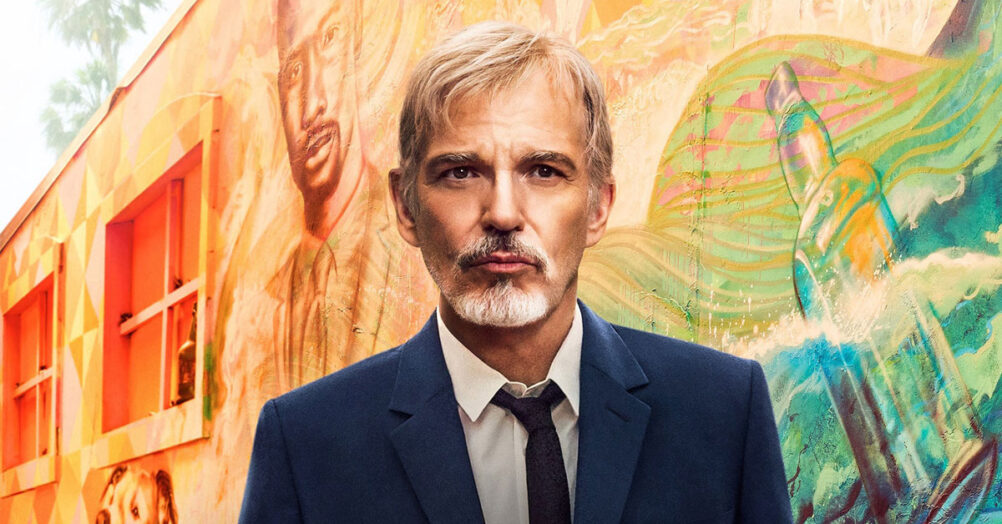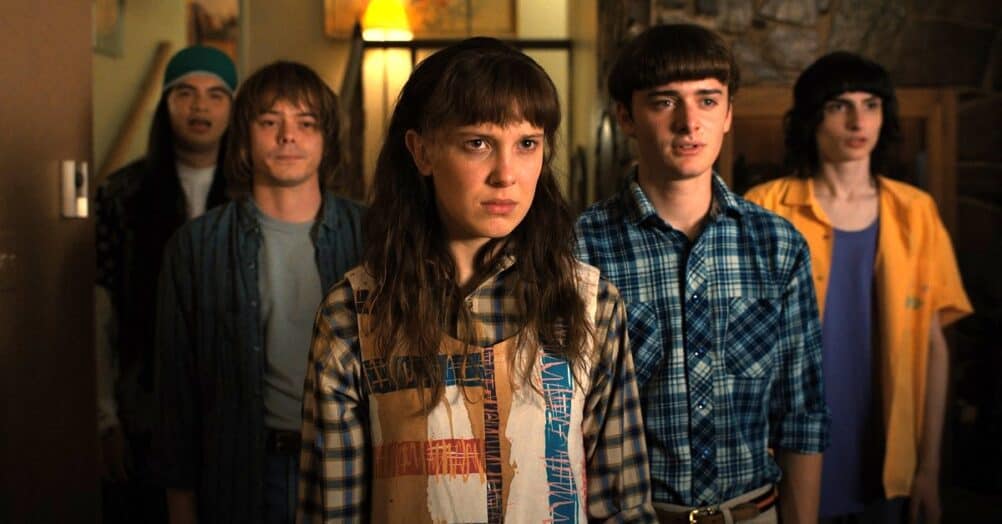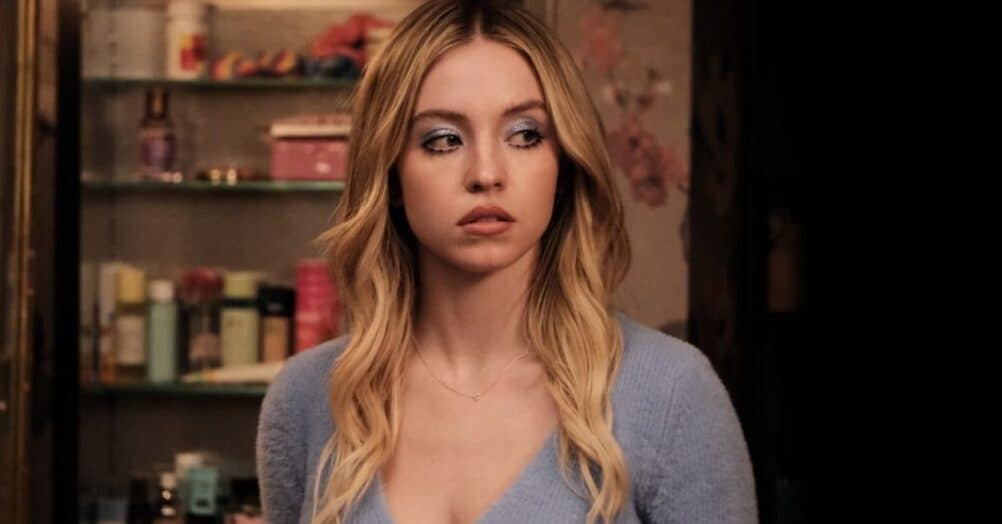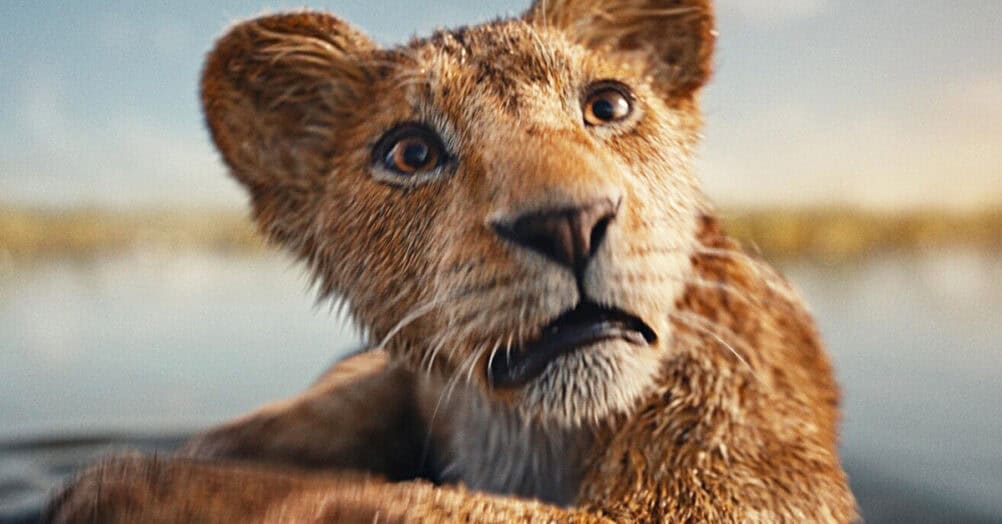
Just as expected, Brittany Murphy was a spirited,
bubbly and vivacious little storm that the wind blew in and out of
our room. She seems mad cool
and someone totally fun to hang with, and her stimulating
personality is inoculated into all her onscreen characters with the
same level of energy and adrenaline. Comparable to some of her past
characters, Murphy’s performance is quite impressive and
effortless as a high strung, hyper, bipolar, white trash prostitute
in her upcoming film THE DEAD GIRL.
THE DEAD GIRL is the story of a young woman whose
brutal murder results in the convergence of five other storylines.
The movie is broken up into five chapters which unfold as
dark, intriguing and heartbreaking stories all connected somehow to
the “dead girl” chapter established as Murphy’s character in
the opening scene. Having
starred in films like DON’T SAY A WORD, 8 MILE and GIRL INTERRUPTED,
Murphy’s personality seems to gravitate to the types of roles
requiring her to be self-destructive, outrageous and generally just
a hyper fireball. Murphy
recently sat with us to discuss the challenges of playing this
character, her preparation for it and working with Karen Moncrieff
on her new Indie film, THE DEAD GIRL.
Check out what Brittany Murphy had to say.
Brittany
Murphy

Kerry
Washington said you taught her how to smoke.
That is true
.
So, is she
a good smoker?
I don’t know. You saw the film. What’d you
think? I hope I did OK. She was practicing and showing me. We met
for dinner. Because of the short preparation time, how Karen wanted
Kerry and I to rehearse was to just familiarize ourselves with each
other. We went for dinner. And I had to be chain smoking for the
role. As you could see, I had to learn to do that. And she taught me
how to curse, so… I’m kidding!!!! (Giggles loudly)
Were you
attached to this role from the beginning?
I was the second person attached to the film,
second or third, after Giovanni (Ribisi).
What
attracted you to it?
Karen asked me to be a part of it and I was a
huge fan of hers from Blue Car. I loved the honesty and truth and
rawness of that film. And then I was really intrigued that she was
doing another picture. I read it, (and) thought I was reading a
psychological thriller. It’s called The Dead Girl, and it started
reading like a psychological thriller, the first act. Then, after
getting past ‘The Stranger’ and then moving on to ‘The
Sister’… you know, they say the journey is the destination. As
clichéd as that is, it really was true with this because all I did
was, while I was trying to figure out who did this – which
character was it? – I started to just not care (who actually did
it).
I started to get completely engrossed in the
lives (of the characters), and in being a voyeur of the lives of
these really richly written characters with so many layers and so
much depth, and how highly unusual that is to see so many of them in
one script. I adored the script. So I met with Karen, then heard her
vision and what she was going to do with it, and then signed on to
be a part of it.
How did she
pitch the part to you? It all builds up to Krista, so what did she
say to you about what she wanted the character to be like? What were
the ideas you brought to it?
Oh, we were at a Q&A the other day, because
neither one of us can really remember because it all happened so
quick. I wish I could be more specific about it. I have said this
before, and I’m sorry to be redundant. I am very visceral when it
comes to choosing material, or characters choosing me, me choosing
them. My job is strange. My job is to believe I’m someone else
more hours of the day than I am myself. That’s a really weird job,
OK? So one wants to make sure that while one is doing is doing that,
first of all, I like to make sure I’m a part of a story that I
think is imperative that it’s told or (is) extraordinarily
entertaining.
And the older I get the more particular I’ve
become about that. Then, who’s telling the story? Through what
eyes? A/k/a/ Karen’s. Then, OK, who is this person that I am going
to be? And does that make sense for me? Immediately, when it comes
to characters, once the story is something that I’d love to be a
part of, it’s a very visceral feeling and I always just kind of
connect and know. When Karen also told me that she thought of me
because of the information she received in some work that I’d done
prior in different other films, and her being a juror and how she
came about this project, I also then sort of felt it was a
responsibility to Krista’s life, because she was a real person.
Was there a
line or something else that helped you figure out who Krista was?
It was very evident to me. I don’t know how
else to… I did ask Karen a lot of questions. ‘How would you like
her to sound?’ ‘Exactly what kind of drugs is she on and how
much of them?’ OK, she’s bi-polar, Karen told me. She’s
self-medicating. Well, I figured she’s self-medicating, so I spoke
with some counselors and had them break down exactly the types of
drugs Karen told me Krista was on and break down what the chemical
reaction with any human being’s body would be. And these reactions
are absolutely atrocious, and that’s why she behaves so
mercurially; just what it depletes one’s body of is so sad and
tragic. And also then she was a chain smoker, and I asked (Moncrieff)
how she always envisioned her sounding and she said, ‘Kind of
gravelly.’ And I said, ‘Kind of like this?’ I did her voice
and she said, ‘Yeah, yeah, yeah, exactly like that.’ So I said,
‘OK, I’ll keep that.’ So Karen and I had a really easy
shorthand.
What was
Krista on?
Crack.
Krista
seems to share a lot in common with your Girl, Interrupted character
and even your 8 Mile character, in that they embody that gritty
outward appearance but want to do better for themselves. Did you
find yourself drawing from previous roles in portraying Krista? What
kind of research did you do?
That is the research that I did…I spoke with
some recovered addicts. I spoke with a counselor or two, but I like
to keep my resources private, to respect their privacy. And people
really helped explain things to me. I also saw some footage, and
that helped. But really the breakdown of the chemical composition
was the biggest help. As far as everything in life – sorry to be
so broad – but it really does cover everything. For me, everything
in life is a learning experience. Everything. This is. Whether we
choose to make it one or not, anything CAN be, I believe.
Inevitability
of her death. Did that help inform your performance?
You know, interestingly enough, no. There was no
foreboding feeling because she didn’t have a foreboding feeling, I
don’t think, of her death. (That’s) not how I saw it or felt it.
I didn’t feel that she had a foreboding feeling of her death, but
I will say, if you saw Girl, Interrupted, that was one experience
where a character killed herself. Daisy killed herself, but how we
shot that film was Daisy’s death completely backwards to the first
scenes in the film. So I actually did shoot, in Girl, Interrupted,
just Daisy, and they blocked me in a certain period of time and shot
me out in three weeks. They shot her completely from her death to
the beginning of the story, and that helped me a lot in
understanding who she was. So I have had that experience before, and
I didn’t feel that here, because Krista loved life so much. She
was very much about, they say, ‘Live in the moment,’ she was
about the second or maybe the millisecond.
Ever worry
about doing too good a job? About glamorizing this lifestyle?
No, I would hope the very, very opposite. If
I’m ever a part of something like this it would be to… I mean,
this film particularly… to help be a very small part of
(imparting) a very large, large message, much larger than any of us
involved, which is that violence is wrong and atrocious. So many
people’s lives in this film, every character’s life, was changed
by this violent act that occurred, and why can’t we just notice
things instead? Why do we have to have something that tragic happen
to kick us in the rear to be able to actually life-altering
decisions for the best, to better ourselves? I don’t understand
that. And I wish more people would. I think we all could start
trying. And I think this is a great message as far as stopping
violence or at least helping to garner awareness towards stopping
violence.
How was
Karen different from other directors you’ve worked with?
She, quite obviously, seeing the film, is a
chameleon when it comes to actors. There’s such a broad cast, and
how she changed her… It wasn’t the Karen way. Karen molded to
each person she worked with as opposed to the people molding to
Karen’s way, which was really fantastic. Yet, she still stood very
strong in herself, very grounded and still had so much respect, the
utmost respect from everyone and the entire crew, and ran the show,
yet still, again, adapted to all of these different styles of
acting, people, egos, you name it. I think that that’s miraculous.
She never lost her cool. This was one of the
happiest sets I have ever stepped foot on in my life, and it
definitely was not light fare. People were there because they wanted
to be, from our costume designer to hair and makeup to the actors to
our whole entire crew, (and) I mean grip, cinematographer; everyone
there had an opportunity to be the artist that they are. Karen
allowed everyone to be creatively rewarded and allowed us – us
meaning myself and the crew and the other actors – to be able to
express our own art. She did not ever try to stifle that, and
that’s a great feeling. People need that… artists need that to
replenish the soul. So everyone felt very free there, and that
allotted for a very happy place because no one felt stifled.
Going
forward are you looking to keep mixing it up, doing indies like this
and bigger films that maybe have a worthwhile message?
For me it’s extraordinarily important to be a
part of films that have messages that, as an artist, I can help
communicate, and messages that I find important because that is what
I do. So if I’m going to try to be a part of getting any sort of
point across I think I should stick to my job and do it that way.
The next film I’m working on is The White Hotel, and I’m
excited. That is a film that has a very large message behind it and
hopefully it will make people extraordinarily aware of how wrong
genocide is.


















Follow the JOBLO MOVIE NETWORK
Follow us on YOUTUBE
Follow ARROW IN THE HEAD
Follow AITH on YOUTUBE